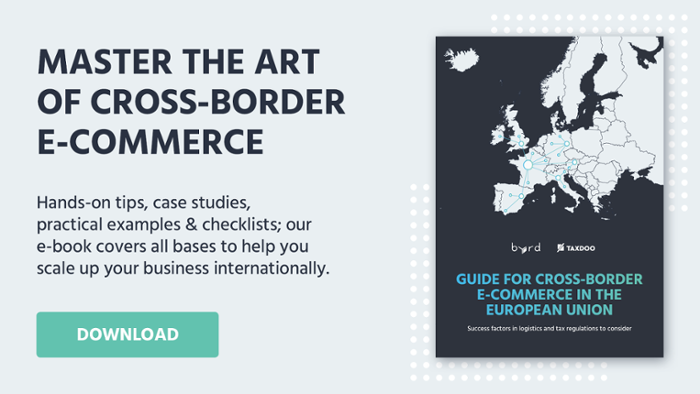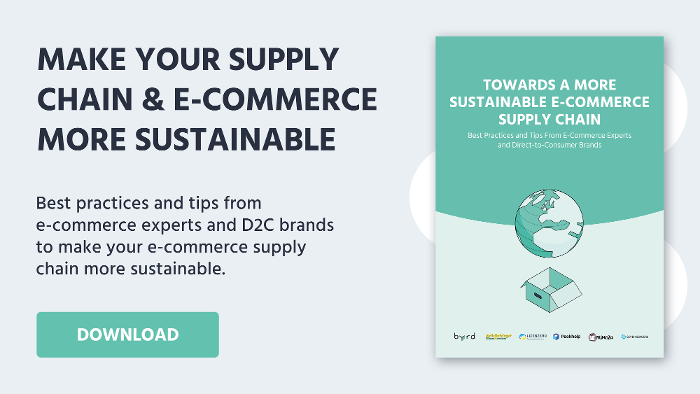Selling from the UK after Brexit
Table of Content
The current process of selling online goods from the UK to consumers in EU countries, like Germany and France, is straightforward. A customer in that country will purchase the item, the goods are then fulfilled from a UK warehouse to the end customer with either UK VAT charged or DE or FR VAT charged if the company has crossed the distance selling thresholds in DE (€100k) or France (€35k).
The goods will move cross-border easily as there are no customs checks nor are there any tariffs involved. The seller just charges VAT in the checkout and files their VAT returns in the countries in which they have a requirement. The customer, located in Germany or France for example, gets their goods in a timely manner without any hidden charges they have a good customer experience and will buy from you again and recommend your goods to their friends and family.
The retailer selling goods from the UK will now face some serious problems in getting the goods to the customers in DE and FR and these may potentially negatively impact the customer experience.
Shipping from the UK to the European Union after Brexit
The retailer selling goods from the UK will now face some serious problems in getting the goods to the customers in DE and FR and these may potentially negatively impact the customer experience.
Because the UK is no longer part of the EU Customs Union or VAT regime after 31 December 2020, it means that it loses the VAT and customs simplification measures that make it very easy to sell goods across the continent. Sellers now have to consider:
- paying Customs Tariffs
- identifying HS and commodity codes
- completing customs declarations
- managing increased VAT liabilities
All sales into the EU from the UK will have to have a customs declaration form filled out in order for the goods to be let into the country. On top of that, there may be tariffs (if the consignment is above €150) that are owed and need to be paid alongside the customs declaration in order for the goods to be released. All companies will have to understand the HS codes of their goods before EU customs will allow them to go to the end consumer.
Other victims of the split are the UK-based sellers that will now have to register and charge VAT in both France and Germany even if they have not crossed the distance selling thresholds. All goods sold will have to have the correct French and German VAT attached to the sale and will subsequently have to file the returns in those countries. Otherwise, their customer will have to pay the VAT – and they won’t thank you for that nasty surprise.
This can be complicated even further if the Brexit trade deal does not give UK companies an exception to fiscal representation. While Germany does not require fiscal representation for companies selling within their borders, France and up to 18 other of the 27 EU member states do, which means that the cost of selling compliantly into these countries will increase. This puts additional pressure on the seller to ensure that the customer has a good experience and buys again to offset some of these costs.
These increased compliance requirements, if not properly addressed, will result in:
- Big delays at customs borders
- Customers having to pay more customs than they need to
- Risk of VAT fines and penalties
- Poor customer experience
Setting up cross-border fulfillment after Brexit
The good news is that retailers overcome those challenges and prevent the disadvantages listed above. By taking adequate steps now, merchants can secure their presence and unlock their full growth potential in the largest e-commerce markets in Europe.
The first step towards setting up the optimized cross-border fulfillment is to split up your inventory and store a portion of your goods in a fulfillment center that’s located in the European Union. Since online merchants from the UK will have to register for VAT for trading with EU countries, splitting up your inventory will not add more complexity from a tax perspective. However, building and managing your own fulfillment center requires a lot of resources and is oftentimes quite costly. This is why we recommend that you outsource your order fulfillment process to a 3PL partner and utilize its international fulfillment network. For example, byrd offers fully integrated cross-border fulfillment solutions from their extensive network of fulfillment centers that span through Germany, Austria, France, Netherlands, and the UK. Opting for warehousing and logistics solution like byrd, has three major advantages for e-commerce retailers:
1) Low shipping costs
Retailers can deliver their inventory in bulk to the respective warehouse located in the EU and, if necessary, fulfill all customs formalities for a large quantity of goods at once. As the products are declared in the EU, they can be shipped at a low cost across the European Union. This enables online shops to continue to offer free shipping services which render into improved conversion rates.
2) Fast shipping
Having your products declared and stored in the EU, parcels do not have to go through customs as they are being shipped to countries within the EU. Jumping on the fast lane with order fulfillment will keep your delivery times smooth and short, which will result in higher customer satisfaction.
3) Less workload for the customer support
Brexit is set to unleash bureaucratic mayhem which will cause big delays at the customs and due to the increased complexity, many will fail to declare parcels correctly. This will not only result in significant delays of parcel deliveries at the customs border but will also result in many issues that may cause returns. Having sub-par processes in place for managing returns, will result in many customers complaining about the service quality and the overall order experience, which will overburden the customer support. By storing your inventory in a fulfillment center in the EU, you can easily avoid bureaucratic bottlenecks and dissatisfied customers.
What retailers have to consider when they store their products in the European Union
The second step towards optimized cross-border fulfillment is to equip your business with the necessary documentation, namely EORI number, VAT number, and HS code for customs declaration purposes.
1) EORI number
Request an EORI (Economic Operators Registration and Identification) number as it is required in order to import goods to the EU. It is also worth noting that it may take up to 10 working days to acquire this number.
2) VAT number
Register for the VAT (Value Added Tax) number. Not sure how to do that? Everything that you need to know about VAT number and how to get it, is explained in this article. Bear in mind that the whole procedure may take up to 8 weeks.
3) HS code
HS (Harmonised System code) is used in the customs declaration to identify products and to calculate the custom duties based on their price and margins. You can find a detailed list of HS codes here. In addition, these are the things that you need for exit declaration:
- Commodity code for the product, which identifies the digits that identify a product, its materials, and production method. The EU uses the six-digit global Harmonised System, or HS Code, and adds a further two digits 'CN heading' Contact Avalara for automated HS code identification.
- Departure point and destination
- Consignee and consignor
- Nature, amount, and packaging of the goods
- Transport method
- Certificates and licenses (if applicable)
- Country of origin of the goods
Preparation for Brexit has already begun
UK-based e-commerce is definitely set up for a bumpy ride once Brexit kicks in. To mitigate the negative effects, online retailers need to reconsider how to optimize their order fulfillment by avoiding customs-induced bottlenecks and prolonged delivery times due to tedious bureaucratic procedures for international cross-border fulfillment. Having said that, outsourcing their order fulfillment to EU-based fulfillment centers and preparing the necessary paperwork well in advance, will help them to successfully address the standards and expectations of EU customers. By having EU-wide cross-border fulfillment at the reach of their fingertips, online retailers will get the option to focus on how to grow their business internationally without having to worry about getting entangled in post-Brexit blockers.
 |
About the authorTalk to Colin Stansbury from Avalara today about how to avoid these significant blockers to recurring trade. |

